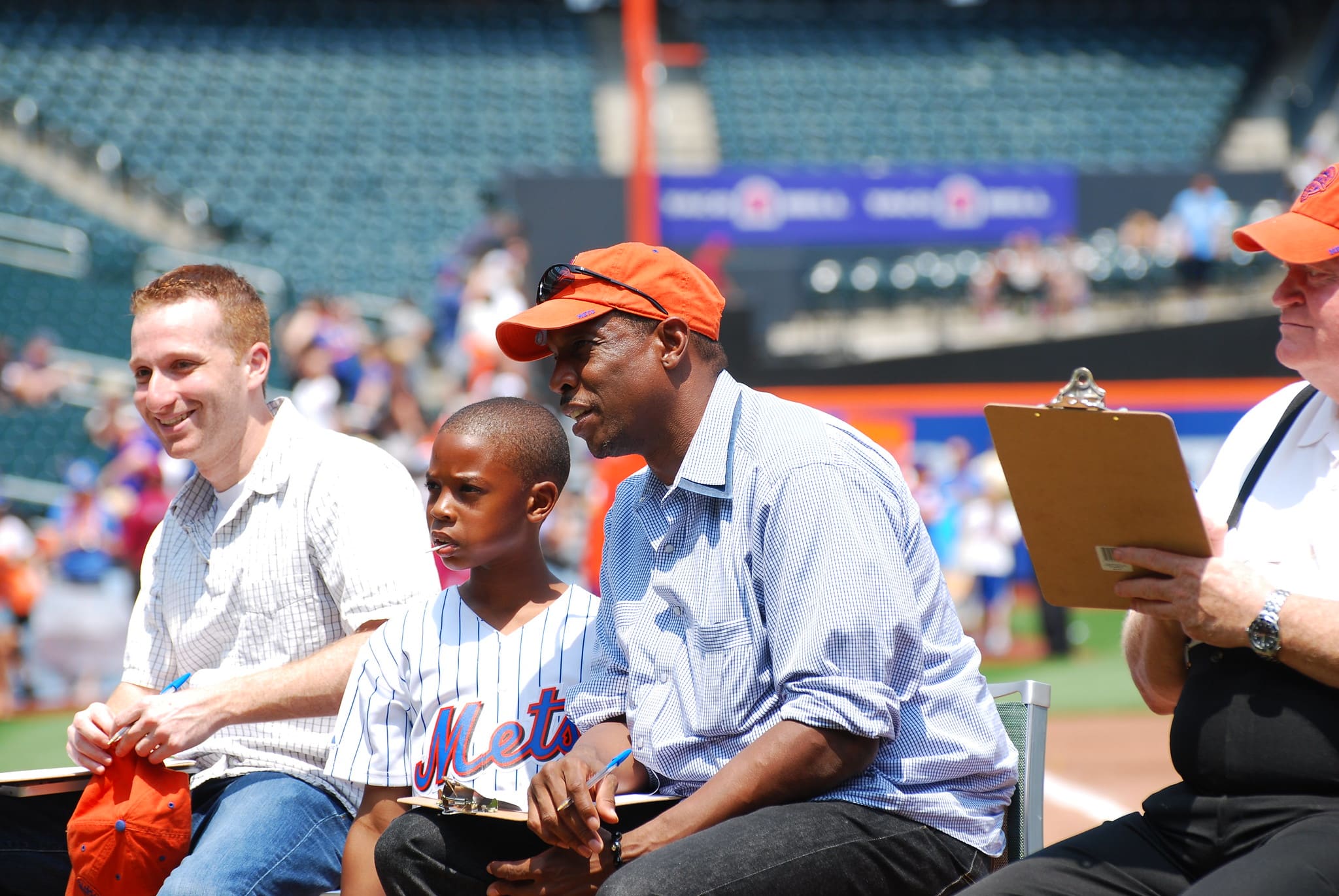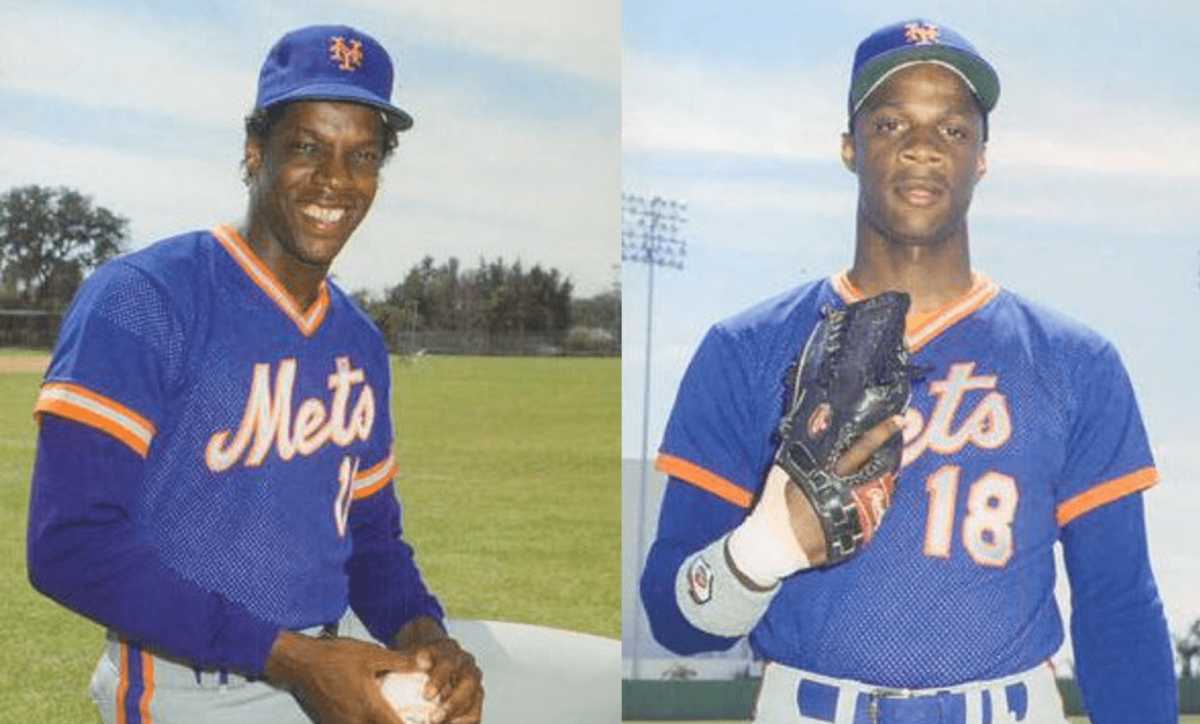There were moments throughout Darryl Strawberry and Dwight Gooden’s lives when they thought an honor like this would never come.
Off-field issues derailed two of the most promising careers in Major League Baseball in the 1980s and the two Mets legends. But after decades of healing and personal work, Strawberry and Gooden will see their numbers retired by the Mets in 2024.
The club officially announced the dates for both retirement ceremonies on Wednesday with both 1986 World Series champions on hand. Gooden’s No. 16 will be retired on Sunday, April 14 before a game against the Kansas City Royals and Strawberry’s No. 18 will be raised to the top of Citi Field before a Saturday, June 1 game against the Arizona Diamondbacks.
“It means a great deal to me,” Gooden said. “This is the highest honor you can get from a team. The way my journey went… I always considered myself a Met, I always wanted to retire as a Met, and now I get that opportunity.
“This is the greatest honor I can achieve in my baseball career.”
Gooden has long been considered the second-best pitcher in franchise history behind the immortal Tom Seaver, ranking second in franchise history in wins (157) and strikeouts (1,875) and third in innings (2,169.2), complete games (67), starts (303) and quality starts (209).
He burst onto the scene in 1984, winning NL Rookie of the Year while setting an MLB rookie record with 276 strikeouts. He was also the youngest player ever named to an All-Star Game at the age of 19. In 1985, he became the youngest pitcher to win the Cy Young Award while capturing pitching’s “Triple Crown,” as he led the majors with 24 wins, 268 strikeouts, and a 1.53 ERA.

Strawberry is the franchise’s all-time home-run leader with 252 and ranks second with 733 RBI, and 580 walks. A seven-time All-Star, he was the 1983 National League Rookie of the Year by hitting a then-club-rookie-record 26 home runs after being selected No. 1 overall three years earlier.
A two-time Silver Slugger Award winner, he led the National League with 39 home runs in 1988. He was elected into the Mets Hall of Fame in 2010.
Two wonderful careers, but ones that could have potentially been even greater if rampant drug and alcohol abuse had not forced early ends to their Mets career. The club let Strawberry walk in free agency following the 1990 season and cut ties with Gooden after the 1995 campaign after he was suspended for the season for a positive drug test while serving a previous suspension.
“You just never know what journey your life is going to go on,” Strawberry said. “You could never predict it. Did I predict or could Doc predict that we would have these troubles? No. Did we get safeguarded when we were playing in New York at a young age? Probably not. Everything was wide open. Twenty-one years old and running into Manhattan, I don’t think that was a good idea.
“I don’t think that was a good lifestyle for me. I think I got kind of corrupted by that lifestyle. I kick myself for that.”
Strawberry was suspended three times by Major League Baseball for substance abuse during his playing days, which followed him in the early years of his retirement. However, he found religion to help stabilize his life in the early 2000s. He is now a pastor living in Missouri with his family.

“I made some bad decisions and there are some consequences behind making bad decisions,” Strawberry said. “I had to pay major consequences behind my bad choices. I learned a lot from it as I sit here today. I’m grateful for it. But at the same time, if I had stayed on track and follow what Gary Carter and Mookie Wilson were living, I probably would’ve ended up being one heck of a ballplayer in Queens for the rest of my career.”
Drug and alcohol problems continued to plague Gooden well after his playing days were over. His recovery is ongoing, but he’s at peace with how his baseball career played out.
“I used to beat myself up and talk about what could have been and what should have been,” Gooden said. “But when I look back at it, as a young kid, my only dream was to play Major League Baseball, stay healthy, and try to play a long time. Along the way, I accomplished a lot of things… I can’t beat myself up with that anymore… The off-the-field stuff played a part, but going through that, I’m able to help others in need as well.”
Days like the ones they will experience on April 14 and June 1 will only help heal those wounds.
“I wouldn’t trade my career, I wouldn’t trade my mistakes, I wouldn’t trade it for anything,” Strawberry said. “It was all a learning lesson in life. To be at this place today and to be able to have this honor where your number is going to be retired — and that’s forever — that’s bigger than just going into the [team] Hall of Fame…
“The Mets fans and all New York fans who saw Darryl Strawberry and Dwight Gooden’s shortcomings, now get to see you be an inspiration and inspire people. No matter how far you fall down, no matter how far you fall off the cliff, as long as you don’t die, you still have a chance to shape your life and change it and be a better you.”































